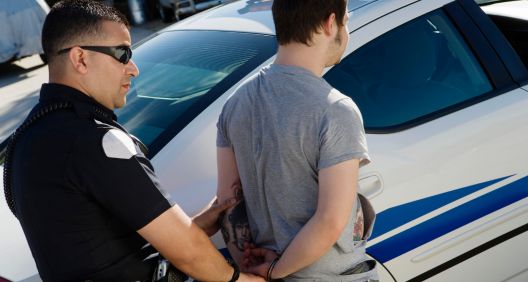Schedule a Consultation
What Happens When You Get A DWI in Texas?

Driving while intoxicated (DWI), also called driving under the influence (DUI), is one of the most commonly prosecuted crimes throughout the United States. Despite every state enforcing strong laws aimed at discouraging DWI, drivers continue to endanger themselves and others by driving while impaired by drugs or alcohol. If you’re wondering what happens when you get a DWI, the answer depends on your specific case.
If you are charged with DWI, it is vital to know your rights and to contact an experienced defense attorney as soon as possible. The first steps you take immediately following your arrest can significantly affect your case, and the right attorney can help you make more informed decisions when it comes to preparing your DUI defense. You have a limited time in which to find defense counsel before pretrial arraignment.
Potential Penalties for DWI
Texas law enforcement stays vigilant for impaired drivers across the state, and prosecutors tend to pursue convictions in DWI cases quite aggressively. An experienced DWI defense attorney in Houston, TX, will be an essential asset if you are charged with any DWI offense, and they can potentially help you avoid the worst of the penalties you could face if convicted.
Under Texas Law, DWI can either be prosecuted as a felony or as a misdemeanor. The majority of DWI offenses reported throughout the state each year qualify as misdemeanors, but the penalties are severe and will increase when a driver has a record of multiple DWI violations within a short timeframe. If a driver commits too many DWI offenses within a short time, they face some of the harshest penalties allowed under the state’s criminal laws.
A first offense will typically result in a fine of up to $2,000 plus penalty assessments assigned by the court, incarceration in county jail for up to 180 days, and suspension of your driver’s license from 90 days up to one year. Your fines, jail time, and suspension period will all increase with a second conviction, and a third DWI can lead to two to 10 years in prison, fines up to $10,000, and driver’s license suspension for up to three years.
It is possible for a defendant to face felony DWI if they have committed more than three misdemeanors in the past, if they were arrested for DWI with a minor child in their car, or if they caused an accident while under the influence that resulted in severe bodily injury or the death of another person. Penalties for felony DWI include harsher fines, longer driver’s license suspension, and incarceration in state prison rather than county jail.
A judge handling sentencing in a DWI case also has the discretionary power to assign additional penalties as they deem appropriate, such as requiring a defendant to complete a substance abuse treatment program, perform community service, and pay restitution to anyone harmed by their actions. Additionally, the defendant will face increased auto insurance premiums that may amount to thousands of dollars over the next several years.
FAQs
Q: Is DWI a Felony?
A: A DWI can be tried as a misdemeanor or a felony in Texas. Most first offenders will face misdemeanor charges, but if the defendant has a record of previous DWI convictions within the past few years, they may face an automatic felony. It is also possible to face a felony DWI conviction if you were arrested for DWI with a minor in the car or if you caused an accident resulting in great bodily injury or death.
Q: What Are the Penalties for a First DWI?
A: A first DWI offense without injury in the state is a Class B misdemeanor. The standard penalty for this offense is a fine of up to $2,000 and up to 180 days in county jail. You will also have your driver’s license suspended. Some judges are willing to forego jail time in sentencing and require a defendant to complete probation or other alternative penalties. Penalties for DWI increase with each subsequent conviction.
Q: Can a DWI Be Expunged?
A: The expungement process can enable a person to have a criminal conviction removed from their record, preventing it from interfering with job searches and other aspects of their life. However, DWI does not qualify for expungement in Texas. If you are convicted of DWI, the record will be permanently visible on all background checks conducted in the future. This could inhibit some job opportunities, and you will likely pay more in auto insurance premiums.
Q: Should I Hire a Defense Attorney for a First-Time DWI?
A: You should always seek defense counsel you can trust when you are charged with any criminal offense. Even if you think you can mount an effective defense on your own, the prosecution may have a very strong case against you, and you will not know how to avoid the worst possible penalties you could face in sentencing. The right attorney can help you avoid conviction if possible or at least mitigate your penalties when conviction is unavoidable.
Q: How Much Does a Defense Attorney Charge?
A: Most private criminal defense attorneys accept clients on an hourly basis. This means the attorney sets an hourly rate and charges the client for all the time they must spend working on the case. The longer the case continues, the more it costs the client. Always take time to verify a potential attorney’s billing policy before you agree to their representation so there are no surprises when it comes to the cost of your defense counsel.
The team at the Law Office of Joseph Ruiz, PLLC, can provide the defense representation you need when you have been charged with DWI. Whether it is your first offense or you have a record of prior DWIs, we can provide the comprehensive legal support you need in this challenging situation. Contact us today to schedule a free consultation with our team to learn more about the legal services we provide to our clients.




